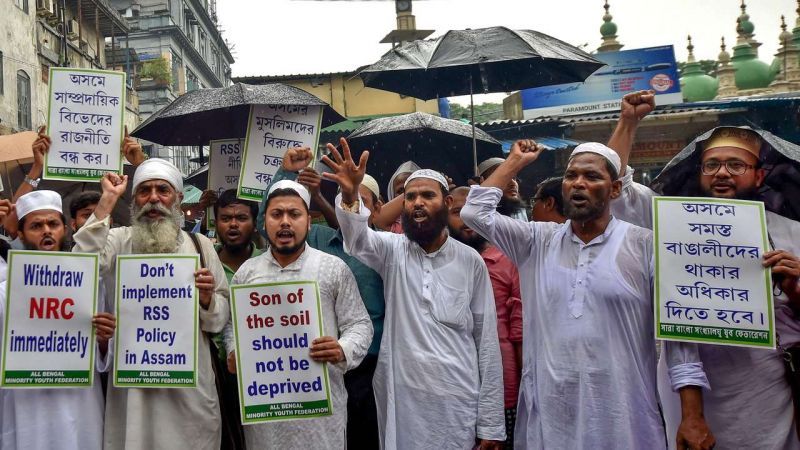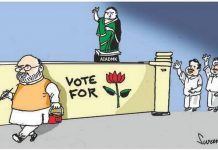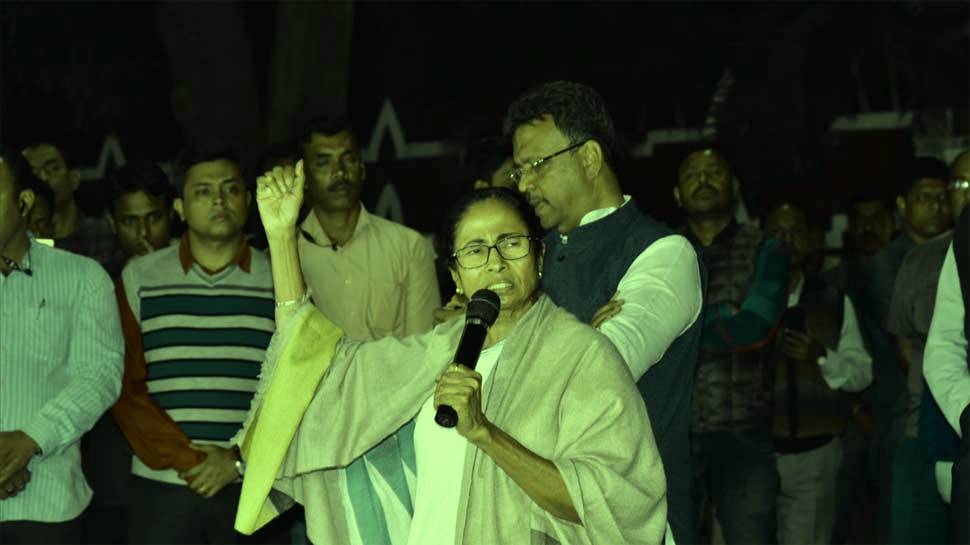The BJP government which initiated the process of NRC in Assam is keen on implementing the exercise yet again, but this time on a national scale. For the BJP government to carry on with the NRC exercise on a national scale it was very important for it to get the nod of the Cabinet before the proposal goes to the Parliament for a final take on the matter. The Cabinet has approved the conduction of the NRC exercise on a national level.
It is to be noted that the Citizenship(Amendment)Bill is a bill that seeks to give citizenship to non-muslim refugees from Pakistan, Bangladesh and Afghanistan. The Bill, has lapsed in the previous term of the Modi regime due to massive protests that had erupted against it in the Rajya Sabha. It is expected that with the approval of the Cabinet, the Bill wIll be taken up in the Parliament in the next week.
It was during a latest press conference that Union Ministers Niramala Sitharaman and Prakash Javedkar announced that the Cabinet has also withdrawn the Jammu and Kashmir Reservation(Second Amendment) Bill,2019. The Cabinet has also approved other important bills such as the Personal Data Protection Bill,2019 and the Central Sanskrit Universities Bill, which would be introduced in the Parliament in the next few days.
It was very crucial for the BJP to get the approval of the Cabinet ahead of implementing its ambitious nationwide NRC exercise project and the fact that it has gained the approval is truly an important move in this direction. The party has requested all its MPs to be present in the House in the coming few days, because it expects that the Citizenship(Amendment)Bill will be passed in the Parliament before December 10.
The Congress has begun a series of attacks on the BJP over the Bill that seeks to grant citizenship to non-Muslim citizens from India’s neighbouring nations like Pakistan, Afghanistan, Bangladesh etc. Congress leader Shashi Tharoor has gone on to call the Citizenship(Amendment)Bill unconstitutional and alleged that the Bill was in violation of the very idea of India as envisioned by the Constitution. He also reminded that unlike Pakistan which was built on the fabric of religious identity, India was deliberately created as a nation that would be able to walk the secular path as envisioned by the likes of Gandhi, Nehru, Maulana Azad, Ambedkar etc. The Congress alleges that the Bill is discriminatory and in violation of the vision of the Constitution.
The decision of the Cabinet and its approval of the Bill comes only a day after Home Minister Amit Shah met up with important leaders of the North-East and re-drafted the Bill in order to address the concerns that were raised by them. Union Home Minister Amit Shah assured all the political representatives, stakeholders and civil-society bodies that their ethnic-cultural concerns would not be undermined and the Bill would indeed provide protection to such religious and states where the Inner Line Permit(ILP) was applicable and to which autonomous administration had been granted under the Constitution’s sixth schedule.
The Citizenship(Amendment)Bill has ignited a great degree of controversy ever since it was proposed by the BJP government and its critics from the Opposition have argued that it is exploitative, discriminatory, anti-secular and a waste of the government’s finances. But in defence of the Bill, Defence Minister Rajnath Singh has said that since countries like Pakistan Bangladesh or Afghanistan were predominantly Islamic countries, the Bill wanted to provide citizenship to non-muslim people who had been persecuted in these nations.
It is also to be acknowledged that the Lok Sabha had passed the Citizenship Amendment Bill in 2016. While the Bill was still to be passed in the Rajya Sabha, it lapsed after the House was dissolved.
Now that the Bill has been approved by the Cabinet, it will remain to be seen whether the BJP can get it passed in the Parliament before December 10.














